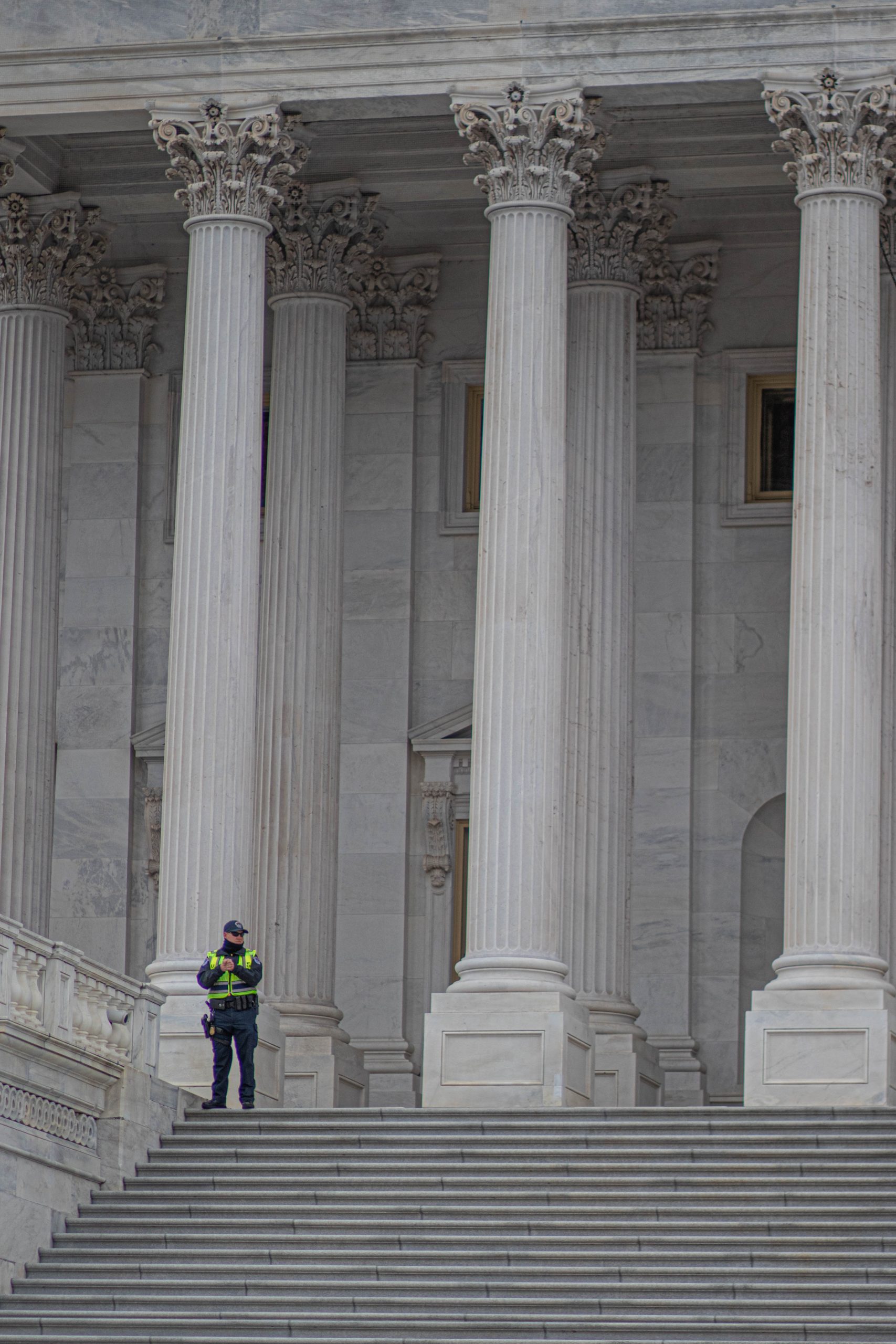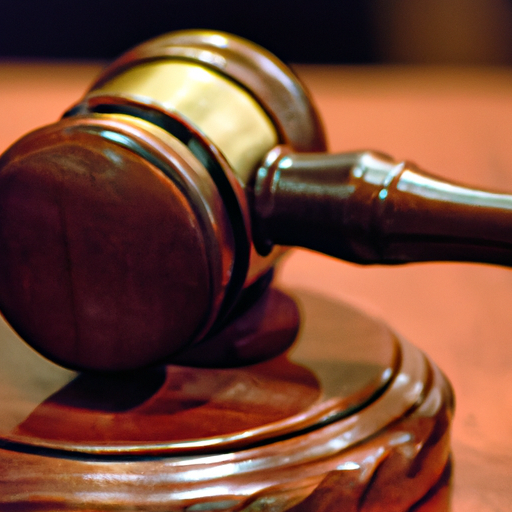In the realm of criminal law, few outcomes bring as much relief and vindication as an acquittal. When charged with a crime, the prospect of facing legal consequences can be overwhelming. However, when an acquittal is reached, it signifies not only the defendant’s innocence but also the triumph of justice. The journey towards an acquittal can be complex and demanding, requiring the experience and expertise of a skilled criminal defense attorney. From meticulous examination of evidence to persuasive courtroom arguments, a qualified lawyer can navigate the intricacies of the legal system and secure a favorable outcome for their clients. If you find yourself entangled in a criminal case, it is essential to seek professional legal counsel to ensure your rights are protected and your innocence is established. Don’t face the battle alone—call our esteemed criminal defense attorney today for a consultation that could alter the course of your life.
Understanding Acquittal
Acquittal is a legal term that refers to the verdict in a criminal trial in which the defendant is found not guilty of the charges brought against them. It is the result of a thorough examination of the evidence and the determination that the prosecution did not prove their case beyond a reasonable doubt. Acquittal is an essential concept in the criminal justice system and plays a crucial role in protecting the rights of the accused.
Types of Acquittal
There are two primary types of acquittal that can occur in a criminal trial.
1. Not Guilty Acquittal
A not guilty acquittal occurs when the jury or judge determines that the evidence presented by the prosecution does not meet the burden of proof required to establish guilt. In these cases, the defendant is declared not guilty, and they are effectively cleared of all charges. This type of acquittal is often the result of a lack of sufficient evidence or inconsistencies in the prosecution’s case.
2. Acquittal by Motion for Judgment of Acquittal
An acquittal by motion for judgment of acquittal, also known as a directed verdict, occurs when the defense attorney requests the court to dismiss the case after the prosecution has presented its evidence. This request is typically made on the basis that the prosecution has failed to present sufficient evidence to support a conviction. If the court grants the motion, the defendant is acquitted, and the case is dismissed without proceeding to the jury.

Legal Process Leading to Acquittal
Acquittal is the result of a comprehensive legal process that ensures a fair and impartial trial for the accused. Understanding the steps leading to an acquittal can provide valuable insight into the complexities of the criminal justice system.
1. Arrest and Charges
The legal process leading to an acquittal begins with the arrest of the defendant and the formal filing of charges by the prosecution. This initial stage involves gathering evidence, conducting investigations, and determining the nature and severity of the alleged crime.
2. Pretrial Proceedings
After the defendant has been formally charged, pretrial proceedings take place to prepare for the trial. This stage may involve plea negotiations, pretrial motions, and the gathering of additional evidence by both the defense and the prosecution. These proceedings aim to ensure that the trial will be conducted in a fair and just manner.
3. Trial
The trial is the most critical phase of the legal process, where both sides present their case before a judge or jury. The prosecution is responsible for proving the defendant’s guilt beyond a reasonable doubt, while the defense works to challenge the evidence and establish reasonable doubt in the minds of the jurors. The trial includes the examination of witnesses, the presentation of evidence, and the arguments of both the prosecution and defense attorneys.
4. Verdict and Acquittal
At the conclusion of the trial, the judge or jury delivers a verdict, which determines the defendant’s guilt or innocence. If the verdict is not guilty, the defendant is acquitted, and they are free from the charges brought against them. The acquittal signifies that the evidence presented in court did not establish the defendant’s guilt beyond a reasonable doubt.
Factors That Influence Acquittal
Several factors can influence the likelihood of an acquittal in a criminal trial. These factors can either weaken the prosecution’s case or provide a strong defense for the accused.
1. Insufficient Evidence
One of the primary factors that can lead to an acquittal is when the prosecution fails to present sufficient evidence to support the charges. Without the necessary evidence, it becomes challenging for the prosecution to meet the burden of proof required for a conviction.
2. Witness Testimony
The credibility and reliability of witness testimony play a crucial role in influencing the outcome of a trial. If the defense is successful in discrediting key witnesses or presenting contradictory testimony, it can create doubt in the minds of the jurors and increase the chances of an acquittal.
3. Expert Testimony
Expert testimony can provide crucial insights and technical knowledge that may be necessary for the defense to challenge the prosecution’s case. Expert witnesses can help explain complex scientific or technical evidence and provide an alternative perspective that can support the defendant’s innocence.
4. Police Misconduct
Instances of police misconduct, such as evidence tampering, illegal searches, or coerced confessions, can significantly impact the credibility of the prosecution’s case. If the defense can demonstrate that the police acted improperly, it can raise doubts about the integrity of the evidence and increase the likelihood of acquittal.
5. Improper Search and Seizure
The Fourth Amendment of the United States Constitution protects individuals from unreasonable searches and seizures. If the defense can successfully argue that the evidence against the defendant was obtained through an illegal search or seizure, it can lead to the exclusion of that evidence from the trial, potentially weakening the prosecution’s case and increasing the chances of an acquittal.
6. Inadmissible Evidence
Certain types of evidence may be deemed inadmissible in court due to legal or procedural issues. If the defense can successfully argue that the prosecution’s use of such evidence violates the rules of admissibility, it can weaken the prosecution’s case and increase the likelihood of an acquittal.
7. Juror Bias
Juror bias can significantly impact the outcome of a trial. If the defense can demonstrate that jurors have biased opinions or prejudices that could affect their ability to make an impartial judgment, it can request that the jurors be dismissed or challenge the verdict on appeal.
Rights of the Acquitted
When an individual is acquitted of criminal charges, they are entitled to certain rights and protections.
1. Double Jeopardy Protection
The Fifth Amendment of the United States Constitution prohibits individuals from being tried twice for the same offense, protecting them from double jeopardy. Once a person has been acquitted, they cannot be retried for the same crime, even if new evidence emerges.
2. Restoration of Civil Rights
An acquittal allows the accused to maintain their civil rights, such as the right to vote, hold public office, and serve on a jury. These rights may have been temporarily suspended during the criminal proceedings but are generally restored upon acquittal.
3. Expungement of Criminal Record
In some cases, an acquitted individual may be eligible to have their criminal record expunged or sealed. Expungement removes the record of the arrest and the charges from public view, providing the individual with a fresh start and protecting their reputation.
Consequences of Acquittal
While an acquittal signifies the defendant’s innocence and freedom from criminal charges, it can still have significant consequences that extend beyond the immediate legal implications.
1. Reputational Damage
Even though the defendant is found not guilty, they may still experience reputational damage as a result of the criminal charges and the publicity surrounding the trial. The mere association with criminal allegations can have long-lasting effects on both personal and professional relationships.
2. Emotional Toll
Facing criminal charges and going through a trial can be emotionally draining and traumatic. While an acquittal provides relief from the immediate legal repercussions, the emotional toll may linger and require support and coping mechanisms.
3. Impact on Future Employment
Despite the acquittal, the defendant may still face challenges in securing future employment. Potential employers may hesitate to hire someone with a publicized criminal trial, even if they were found not guilty. This can create additional hurdles for individuals trying to rebuild their lives after the trial.
4. Financial Costs
Defending oneself against criminal charges can be financially burdensome. Legal fees, expert witness fees, and other trial-related expenses can add up, placing a significant strain on the acquitted individual’s finances.

Frequently Asked Questions about Acquittal
1. What happens after an acquittal?
After an acquittal, the defendant is declared not guilty and is free from the charges brought against them. They are entitled to the rights and protections afforded to them, including the restoration of civil rights and the ability to petition for the expungement of their criminal record.
2. Can a person be retried after an acquittal?
No, the principle of double jeopardy prevents an individual from being retried for the same offense after being acquitted. Once the verdict of not guilty is reached, it serves as final and conclusive judgment, protecting the defendant from any further criminal prosecution for the same charges.
3. Will an acquittal clear my criminal record?
While an acquittal is a favorable outcome in a criminal trial and signifies that the defendant is not guilty, it does not automatically clear the individual’s criminal record. Depending on the jurisdiction and the specific circumstances, the acquitted individual may have to take steps to have their record expunged or sealed.
4. Can I sue for wrongful arrest or prosecution?
If you believe you were wrongfully arrested or prosecuted, you may have grounds to file a lawsuit for wrongful arrest or malicious prosecution. However, the success of such a lawsuit depends on various factors, including the availability of evidence, the actions of law enforcement, and the applicable laws in your jurisdiction. It is essential to consult with an experienced attorney to evaluate the merits of your case.
5. How long does an acquittal stay on someone’s record?
The length of time an acquittal stays on someone’s record can vary depending on the jurisdiction and the specific circumstances. In some cases, an acquitted individual may be eligible to have their record expunged or sealed, effectively removing the record of the arrest and the charges from public view. However, it is crucial to consult with an attorney familiar with the laws in your jurisdiction to determine the specifics of record expungement.
Conclusion
Acquittal is a fundamental concept in the criminal justice system that safeguards the rights of the accused. It signifies the defendant’s innocence and serves as a powerful reflection of the burden of proof required to establish guilt beyond a reasonable doubt. Understanding the types of acquittal, the legal process leading to acquittal, and the factors that can influence the outcome of a trial provides valuable insight into the complexities of the criminal justice system. If you find yourself facing criminal charges, it is crucial to seek the guidance and representation of an experienced criminal defense attorney who can navigate the intricacies of the legal process and protect your rights. Remember, every case is unique, and consulting with a lawyer is the best way to get personalized advice and representation tailored to your specific situation.



